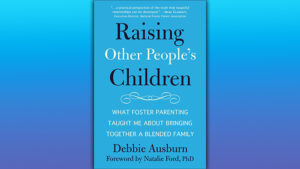Many foster parents are able to eventually adopt their foster children. It’s a wonderful way to add to your family, and it’s an important step toward stability for a child. But as wonderful as adoption can be, it’s not a magic wand that resolves all of a child’s trauma. If you are considering adoption or have already adopted, I have stumbled into several principles that are important to keep in mind during the process.
Bonding Takes Time
Yes, adoption is an important legal step, and for adults it signals the depth of the commitment that we are making to our children. For former foster children, however, we may just be saying things that they have heard before. After all, their biological families were supposed to be permanent, and other foster families may have made promises that they didn’t keep. So don’t expect your children to believe your commitment simply because a judge has pronounced them part of your family. Children will not believe our promises to always be there until they actually see that we are always there. That proof takes time, and we have to give our children the time to test and learn to believe us.
Expect Children to Test Your Commitment
Foster children often feel as though they are walking on eggshells, with every action carrying the potential of getting them kicked out. Once they feel some stability from adoption, they often start feeling more comfortable testing their limits. It’s developmentally normal for children to test their boundaries, and the more secure they feel in our homes, the more testing we may see. Children also will test our commitment to see if we really mean it. Children learn by testing the boundaries of their environment, starting with their earliest days of banging toys on the wall. That trait doesn’t change just because they are emotional rather than physical.
“Raising Other People’s Children gives a practical perspective on the truth that beautiful relationships can be developed even when we’re not the people who are supposed to be there—because we are the people who choose to be there.” —Irene Clements, Executive Director, National Foster Parent Association
They May Need Time to Grieve
No matter how wonderful you are, your children likely will still miss their biological family. They also may worry about losing touch with siblings or extended biological family that they value. Sometimes they aren’t missing what they actually had as much as what they think they should have had, or what their biological family could have been. They will need time to work through the reality of their circumstances. So don’t take it personally if they romanticize or show signs of grieving for their “lost” family. Be supportive, such as doing what you can to help them maintain positive biological relationships, and give them time to work through how their world has changed.
They May Spend Time Searching for Their Identity
Even if they have no memory of their biological families, adopted children tend to struggle more with a sense of identity than children who remain with a biological parent. Learning to settle into an adopted family may take some time, and developing a sense of stability definitely takes time. Again, don’t take their search for identity as any sort of comment on your parenting or how much you care about them. It stems from circumstances and psychological dynamics that neither you or they can change. All you can do is remain committed to your relationship and walk alongside them on their journey to find where they belong.
Bringing a child into your family through adoption feels like the end of a long legal process. In reality, it is only the beginning of another adventure for your family. If you prepare for the challenges, however, you will have a better chance of enjoying the wonder that unfolds along the way.
About the Author
Debbie Ausburn is a social worker, foster parent, criminal prosecutor and civil trial attorney. That background has given her unique insights into defending child care centers, camps, schools, and mentoring organizations. She has volunteered with and defended youth-serving organizations throughout the United States in matters as diverse as personal injury cases, intrusive government regulations, libel and slander issues and claims of sexual abuse. She blogs about legal topics at youthserviceslaw.com, and parenting issues at otherpeopleschildren.org. She is based in Atlanta, GA.





